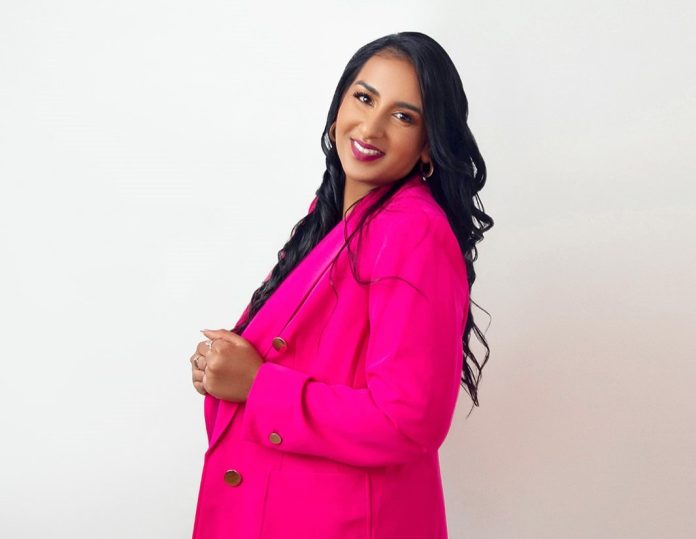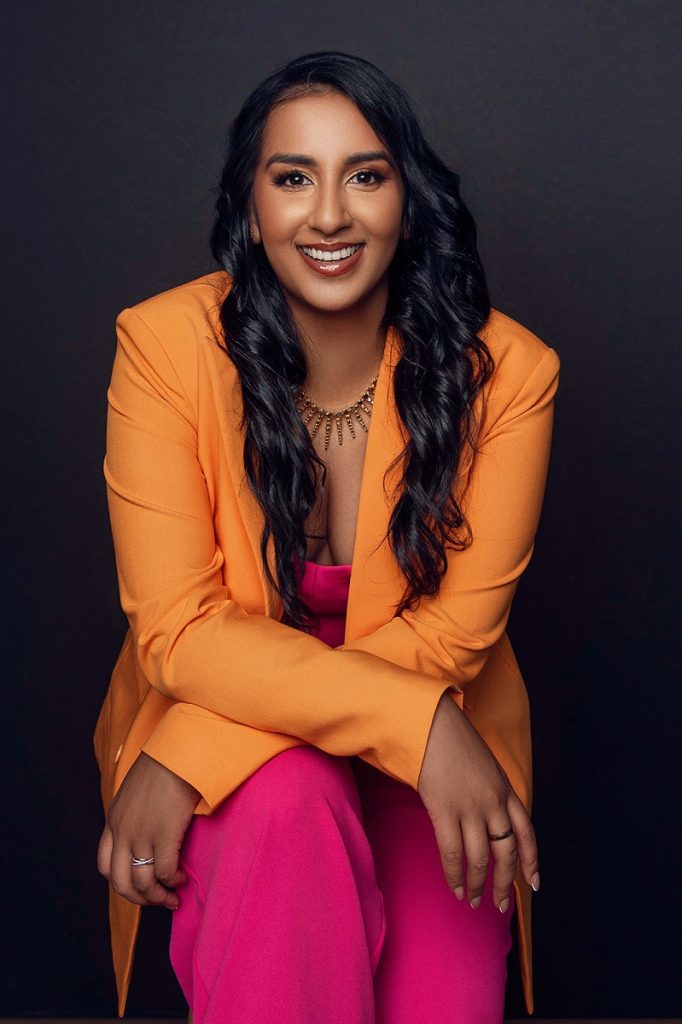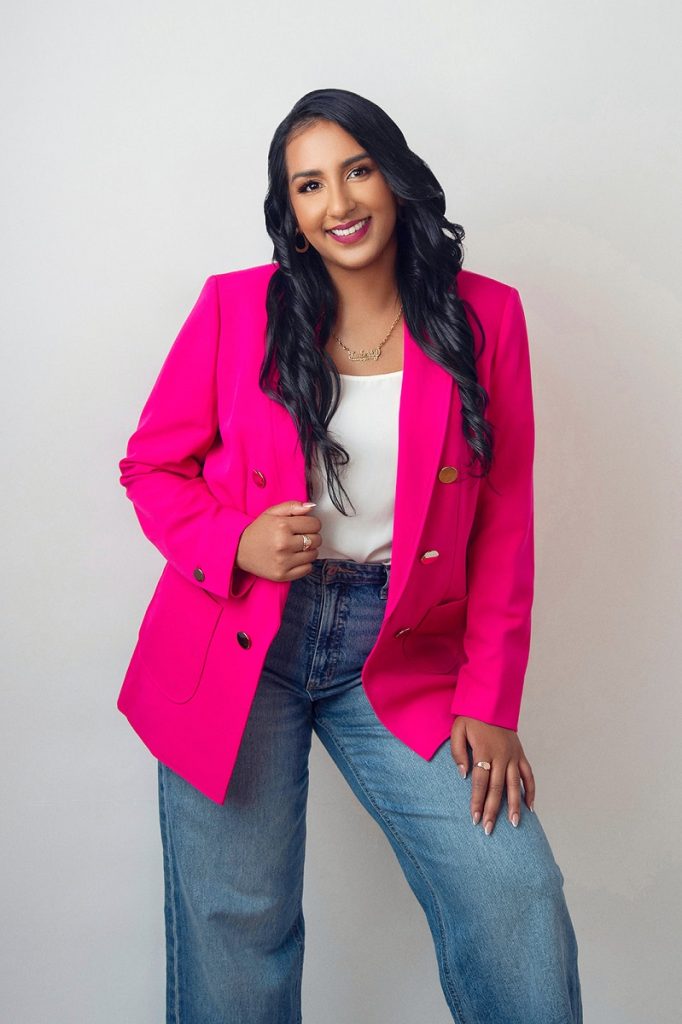
In the bustling streets of New York, where cultures intertwine and dreams are born, Kim David’s tale is one of resilience, pride and entrepreneurial spirit. As a Guyanese-American, David’s roots in South Queens played a significant role in shaping her identity.
Before embarking on her entrepreneurial journey, she spent more than a decade in the corporate world, honing her skills as a storyteller, researcher and strategist. Her story took an unexpected turn when she was laid off approximately six months before the COVID-19 pandemic hit.
Today, she stands as the head of a liberation-focused career and marketing agency, with a personal history of working with major brands and a future helping smaller ones shine. David is a former finalist for the Forbes 30 Under 30 list and is now ultimately carving her own course with her business Freebird Society. In this Q&A, we uncover the motivations, challenges and triumphs that have shaped Kim David’s extraordinary path.
What’s your Caribbean connection?
My parents immigrated from Guyana in the ’80s and my sister and I were born here. I grew up in South Queens, New York where there is a large concentration of Indo-Caribbeans in Richmond Hill and South Ozone Park. I’m really grateful to have had such a strong tie to my culture growing up outside of Guyana.
What exactly is Freebird Society and what is the goal of this agency?
Freebird Society offers personalized business growth consulting services, which most often looks like brand and marketing strategy and planning, as well as Fractional Chief Marketing consulting where I help CEOs build and optimize their marketing teams and operations.
But Freebird Society is also evolving into a personal development and community platform. I’m currently getting ready to launch Fly Free From Corporate, a course designed to help other women leverage their 9-5s to build their dream businesses. I’m also working on a membership space where predominantly Black, brown, and other women of color can network and build the kind of relationships that helped me transform my business from a fantasy to a consistent revenue generator.

How did you become such an expert at your craft?
Before becoming an entrepreneur, I spent over a decade in the corporate world. I’ve worked since I was 14, and my very first real job was actually at a science museum. I credit my experience there for giving me a leg up when it comes to my presentation and communication skills, which became the foundation for my entire career.
After my first year of college at Emory University in Atlanta, I interned with a startup in the tech/digital marketing space and that was the beginning of my career in marketing. I then went on to work with incredible brands like Oreo, Cartoon Network, and Nestle while at several different agencies. In 2016, my client, the New York Yankees, hired me to come in-house and start their social media and digital marketing department.
Shortly after, I was a finalist for the Forbes 30 Under 30 list. And while all of that recognition came my way, those experiences led me to realize that continuing to climb the corporate ladder was no longer for me.
When did your passion for entrepreneurship begin and what inspired you to pursue it?
My passion for business and entrepreneurship was born out of feeling like there was never enough space for me to spread my wings, regardless of the role or company. I now see that those limits were always rooted in maintaining the status quo and harmful systems of oppression.
It took a while for me to fully leap into becoming a business owner because I never saw myself as an entrepreneur until it was my only option. It also didn’t help that I didn’t know anyone who had a business like the one I wanted to build, nor did my family understand what I was trying to do.
I started freelancing with Caribbean-owned small businesses while I was still in my last full-time role. Then I was laid off about 6 months before the pandemic began. Even though it was hard to accept it, I knew being laid off was a major blessing in disguise. It pushed me to double down on this new journey of serving clients directly and independently.
I started working with purpose-driven small businesses, but after facing sexual harassment from a client, I decided to exclusively serve women business owners.

What advice can you give to our readers, especially young women, who are interested in pursuing entrepreneurship?
If you are curious at all about entrepreneurship, try it out and see what happens. The best thing you can do is follow that inkling, because I truly believe that we have these desires for a reason.
Seek community. One of the greatest catalysts for my growth was finding community among other women entrepreneurs who shared my values.
Finally, build relationships. We sometimes think that building a business means we need to sit in front of our computer or workstation toiling away. But the truth is, marketing is just about talking to people, making ourselves known and continuing to build those relationships. The idea that we need a massive following in order to have a successful business is a myth.
What are your top three business tips for brands just starting out?
- Focus on building a business before a brand. Your branding and marketing can only be effective if your consumer experience matches up. I like to say that ‘everything is marketing,’ which includes your customer experience. If you have amazing marketing but let people down in the fulfillment stage, that will stunt your growth in the long run.
- There are no rules! Digital marketing has led people to believe that there are certain formulas that lead some businesses to be successful over others. That’s simply not true. There are unlimited ways to build and grow your business, never give up on your integrity or gut intuition when building your business. Instead of formulas, it’s more about tapping into the right support network or resources to guide you to make smarter decisions.
- Experimentation is the name of the game. All marketing, and business for that matter, is just a series of experiments. You’re constantly learning, tweaking, implementing and repeating that cycle over and over. It helps to get comfortable with trial and error and to consciously create a system to document these cycles.
What are some 2023 / 2024 marketing trends and upcoming transitions can businesses expect to see?
- Live content will continue to drive sales. Not only are the majority of social platforms optimizing this content format for visibility, but it’s great practice to demonstrate your product or offers and talk to your people in real-time.
- Brands will feel more human than ever. One way this shows up is through your brand voice. We’ll start to see more businesses speaking, like how Wendy’s tweets across all marketing assets, from website to packaging.
- AI (artificial intelligence) will help some grow faster and smarter, while it will also expose those who constantly rely on shortcuts without paying attention to the details. Remember that doesn’t mean AI can do it all, we still need to apply a human touch before anything becomes consumer-facing.
And about your podcast…
The Work But Don’t Forget To Live podcast is all about the stuff that no one talks about when it comes to work, business and entrepreneurship. I’m the kind of person who brings my heart into everything I do and I want to have open conversations about the messy middle, grime and discomfort we face as entrepreneurs.
Success stories are great, but I want to bring forward the underlying stories about our personal development, mental health and spiritual journeys, and the ways we fight to challenge the ways things have always been done.
I’ll also be featuring business owners who don’t necessarily aim to reach 7 figures or serve a mass audience because I want to normalize all of the different ways we can build fulfilling businesses beyond capitalistic standards.































